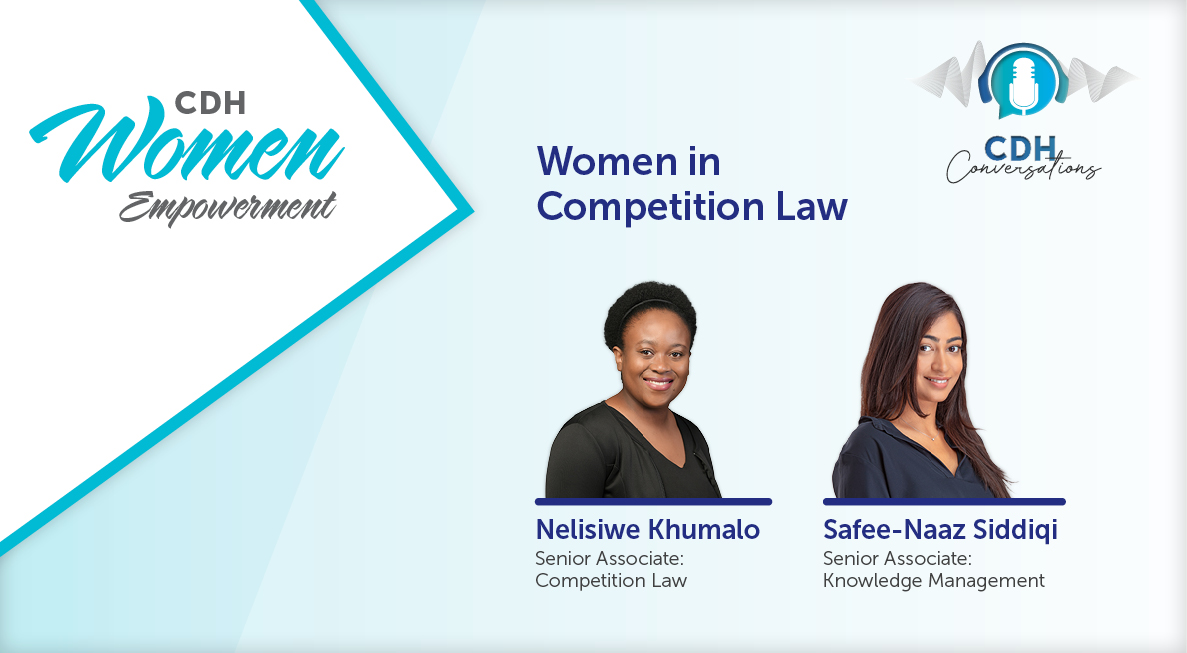Vodacom–Maziv merger ushers in a new era of inclusive access to connectivity
At a glance
- The approval of the Vodacom–Maziv merger by the Competition Appeal Court marks a defining moment for South Africa’s digital future.
- The court’s judgment, which overturned the Competition Tribunal’s earlier prohibition, recognises that the extensive commitments made by Vodacom and Maziv will profoundly benefit the country’s citizens, especially those in low-income and historically underserved areas.
- The court found that the merger, subject to the revised conditions attached to the judgment, will advance public interest, while supporting the constitutional imperative of expanding equitable access to essential services and economic opportunity.
The court found that the merger, subject to the revised conditions attached to the judgment, will advance public interest, while supporting the constitutional imperative of expanding equitable access to essential services and economic opportunity.
Rollout commitments to transform access for the most vulnerable
At the centre of the court’s decision were the rollout and investment undertakings offered by Vodacom and Maziv to expand connectivity nationwide.
Key commitments include:
- A binding undertaking by Maziv to extend fibre connectivity into lower income “reach areas” and “key areas”, defined as suburbs, townships, villages and informal settlements where the average household income is less than R254,495 and R60,000 per annum, respectively.
- A requirement that Maziv achieve an average connection rate across these areas, ensuring affordable or free access to households and communities that would otherwise remain excluded from the digital economy.
- R60 billion in capital expenditure by Vodacom to achieve 90% 5G population coverage within five years, rolling out at least 564 new 5G sites each year.
- Free, uncapped wholesale fibre-to-the-home (FTTH) services for every public and private school, as well as the provision of broadband connectivity to 1,573 healthcare facilities, 210 libraries, and 100 police stations nationwide.
- The creation of 10,000 direct and indirect jobs, with further commitments to increasing contributions to employee benefit schemes.
The court observed that these measures will have “a material effect on poorer areas of the country which to date have been denied the obvious benefits of such access”.
Empowering small businesses and historically disadvantaged entrepreneurs
Several additional public interest conditions of the deal that will support small and medium enterprises and historically disadvantaged persons include:
- The establishment of an enterprise and supplier development fund, targeted at local contractors and distributors involved in infrastructure rollout. The fund will provide business support, coaching and training in areas such as finance, governance and strategic planning.
- A commitment to increase procurement spend on South African-manufactured goods and services beyond existing benchmarks, driving local industrial growth.
- The establishment of an employee benefit scheme to promote broad-based worker ownership in Maziv and its subsidiaries.
These commitments collectively ensure that the benefits of the merger extend far beyond consumers, creating pathways for inclusive participation in South Africa’s telecommunications sector and fostering sustainable job creation.
Balancing competition and public interest through a constitutional lens
The court’s ruling provides important guidance on how to weigh competition and public interest factors under section 12A of the Competition Act 89 of 1998. It affirmed that:
- the substantial prevention or lessening of competition (SLC) test and the public interest test must be assessed independently but weighed together to reach a holistic, rational outcome; and
- both must be interpreted “through the prism of the normative framework of the Constitution”, ensuring that competition law advances equality, access and human dignity.
In applying this framework, the court expanded on the meaning of consumer welfare within the SLC analysis. Drawing from the Constitutional Court’s reasoning in Competition Commission v Mediclinic Southern Africa [2022] (4) SA 323 (CC) that decision-makers should always have regard to “the plight of the financially under-resourced or the vulnerable”, the court held that the SLC test must be interpreted to include the welfare of consumers, particularly those most vulnerable in society.
The court explained that while section 12A(3) lists specific public interest factors, broader consumer benefits – such as affordable access to essential digital infrastructure, should be considered within the SLC assessment itself. The court noted that “none of these provisions can be located in the five areas specified as public-interest concerns. All of these address the most vulnerable consumers in society and accordingly must form part of an SLC test.”
This reasoning establishes that the SLC analysis in South African competition law must account for the impact of a merger on consumer welfare, interpreted through a constitutional lens.
The court further affirmed that consumer welfare, particularly for the most vulnerable, must form part of the SLC analysis.
By adopting this approach, the court recognised that the merger’s extensive consumer and public interest commitments “outweigh any initial competition concerns”, and that they align with the constitutional duty to promote access to essential services.
Affordable connectivity as a constitutional and socio-economic imperative
The court’s findings echo the Competition Commission’s 2025 Cost of Living Report, which states that:
“Access to internet is now considered an essential service similar to electricity and water supply rather than a luxury item due to its importance in the everyday lives of South Africans. It is therefore important that affordable, reliable internet access is available to all including those living in remote areas.”
The Vodacom–Maziv commitments directly address this imperative by bringing reliable, high-speed connectivity to communities that have long been excluded from the digital economy, empowering schools, police stations, healthcare facilities, small businesses and households alike.
Inclusive digital development
Through large-scale investment, job creation, skills development and nationwide infrastructure expansion, the Vodacom–Maziv merger will not only accelerate access to connectivity but also contribute to the broader constitutional vision of equality and socio-economic upliftment.
As the court concluded, these commitments represent a landmark step towards “maintaining or increasing the scope for choice of essential and much-needed services with particular regard to the plight of the financially under-resourced or the vulnerable”.
The information and material published on this website is provided for general purposes only and does not constitute legal advice. We make every effort to ensure that the content is updated regularly and to offer the most current and accurate information. Please consult one of our lawyers on any specific legal problem or matter. We accept no responsibility for any loss or damage, whether direct or consequential, which may arise from reliance on the information contained in these pages. Please refer to our full terms and conditions. Copyright © 2026 Cliffe Dekker Hofmeyr. All rights reserved. For permission to reproduce an article or publication, please contact us cliffedekkerhofmeyr@cdhlegal.com.
Subscribe
We support our clients’ strategic and operational needs by offering innovative, integrated and high quality thought leadership. To stay up to date on the latest legal developments that may potentially impact your business, subscribe to our alerts, seminar and webinar invitations.
Subscribe




